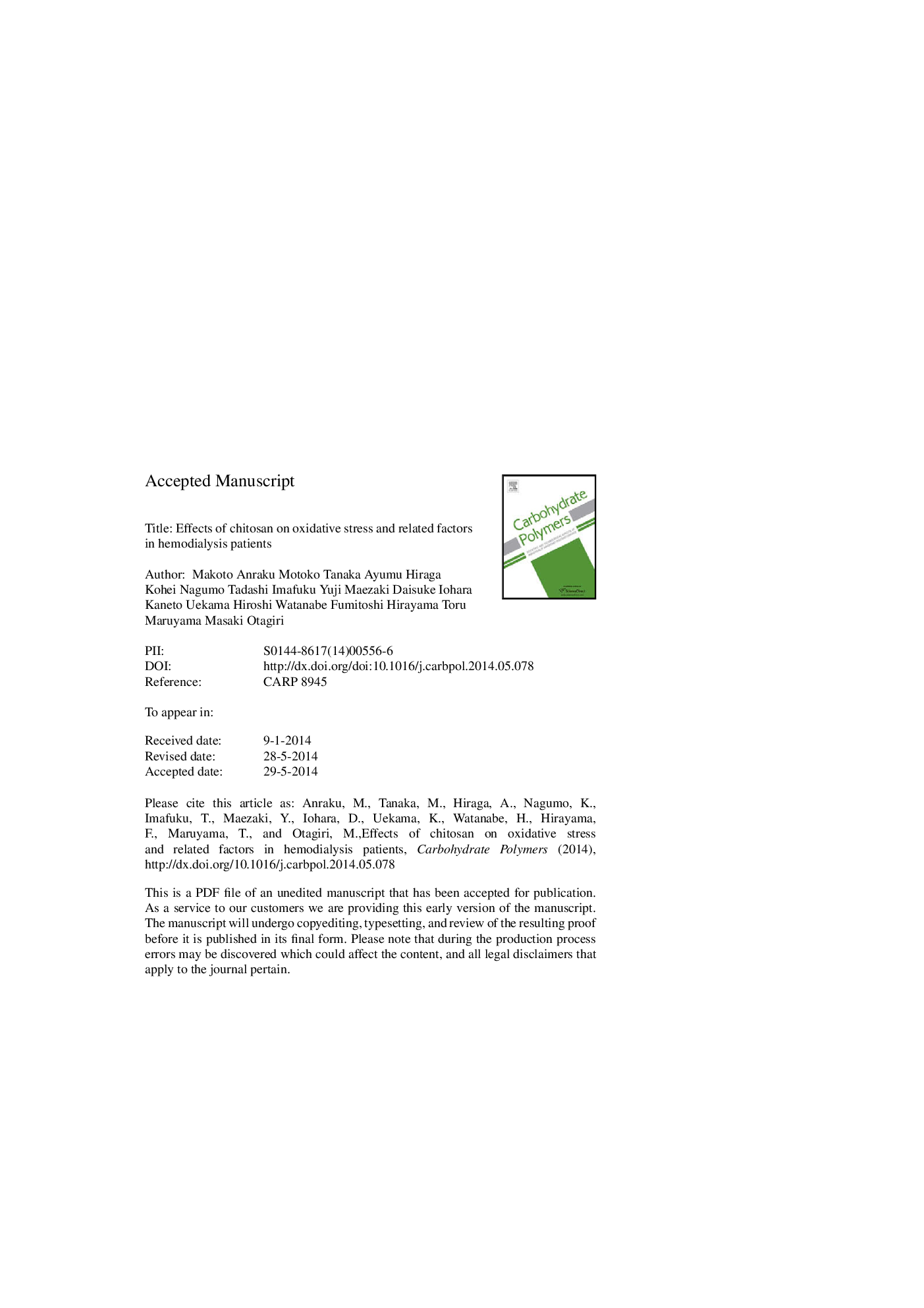| Article ID | Journal | Published Year | Pages | File Type |
|---|---|---|---|---|
| 7791118 | Carbohydrate Polymers | 2014 | 25 Pages |
Abstract
In recent world-wide studies, chitosans were tested as a dietary supplement for inhibiting the absorption of certain lipids and bile acids. We previously demonstrated the antioxidative and renoprotective potential of chitosan supplementation in chronic renal failure using 5/6 nephrectomized rats. In this study, we report the effects of chitosan on oxidative stress and related factors in hemodialysis patients. The ingestion of chitosan over a 12-week period resulted in a significant decrease in serum indoxyl sulfate and phosphate levels, compared with the levels prior to the start of the study. The ingestion of chitosan also resulted in a lowered ratio of oxidized to reduced albumin and a decrease in the level of advanced oxidized protein products. In in vitro studies, chitosan solutions were found to bind 38.5% of the indoxyl sulfate and 17.8% of the phosphate, respectively. Further, the oxidized albumin ratio was correlated with serum indoxyl sulfate levels in vivo. These results suggest that the ingestion of chitosan results in a significant reduction in the levels of pro-oxidants, which include uremic toxins, in the gastrointestinal tract, thereby inhibiting the subsequent development of oxidative stress in the systemic circulation. In addition, the long-term ingestion of chitosan has the potential for use in treating hyperphosphatemia in hemodialysis patients.
Related Topics
Physical Sciences and Engineering
Chemistry
Organic Chemistry
Authors
Makoto Anraku, Motoko Tanaka, Ayumu Hiraga, Kohei Nagumo, Tadashi Imafuku, Yuji Maezaki, Daisuke Iohara, Kaneto Uekama, Hiroshi Watanabe, Fumitoshi Hirayama, Toru Maruyama, Masaki Otagiri,
